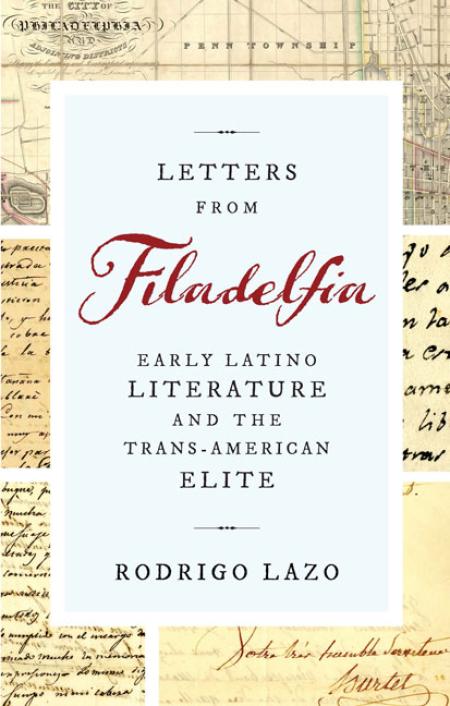
American Antiquarian Society
185 Salisbury Street
Worcester, MA 01609
United States
For many Spanish Americans in the early nineteenth century, Philadelphia was Filadelfia, a symbol of republican government for the Americas and the most important Spanish-language print center in the early United States. In Letters from Filadelfia, Rodrigo Lazo opens a window into Spanish-language writing produced by Spanish American exiles, travelers, and immigrants who settled and passed through Philadelphia during this vibrant era, when the city’s printing presses offered a vehicle for the voices advocating independence in the shadow of Spanish colonialism.
The first book-length study of Philadelphia publications by intellectuals such as Vicente Rocafuerte, José María Heredia, Manuel Torres, Juan Germán Roscio, and Servando Teresa de Mier, Letters from Filadelfia offers an approach to discussing their work as part of early Latino literature and the way in which it connects to the United States and other parts of the Americas. Lazo’s book is an important contribution to the complex history of the United States’ first capital. More than the foundation for the U.S. nation-state, Philadelphia reached far beyond its city limits and, as considered here, suggests new ways to conceptualize what it means to be American.

Rodrigo Lazo is professor of English at the University of California, Irvine, where he also has appointments in the departments of Spanish and Comparative Literature. He is co-editor of The Latino Nineteenth Century (2016) and author of Writing to Cuba: Filibustering and Cuban Exiles in the United States (2005) His articles have appeared in numerous journals and collections, including American Literary History, Leviathan: A Journal of Melville Studies, and Recovering the US Hispanic Literary Heritage. Lazo was born in Ecuador and immigrated to Los Angeles at the age of 8.